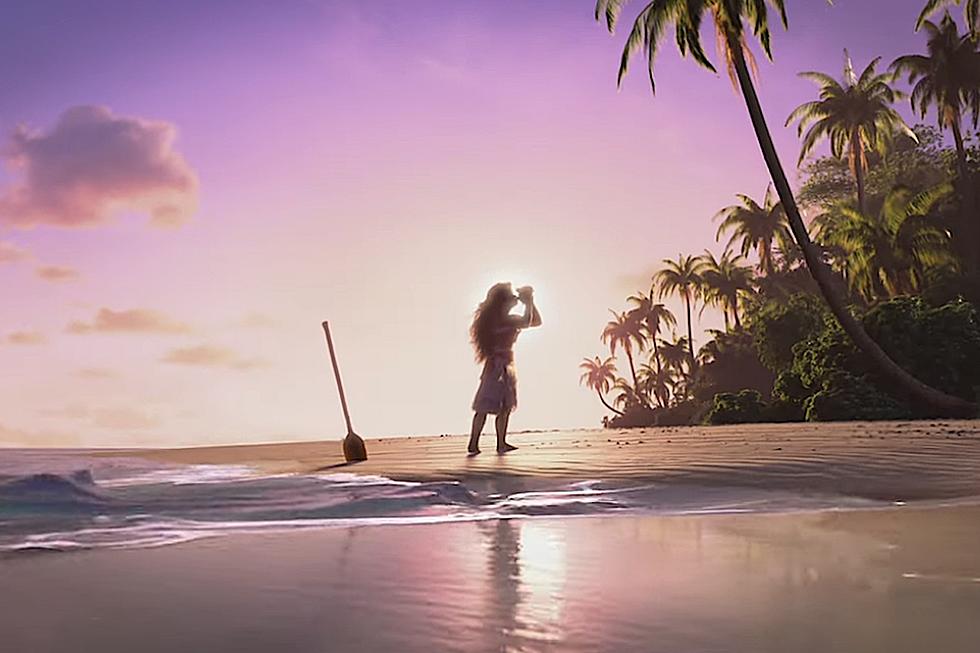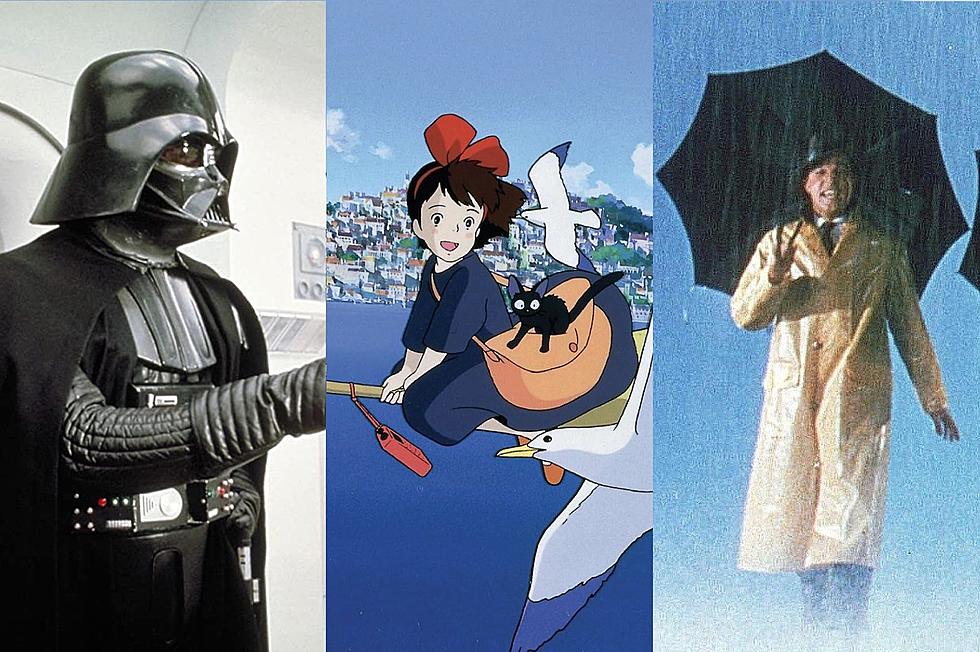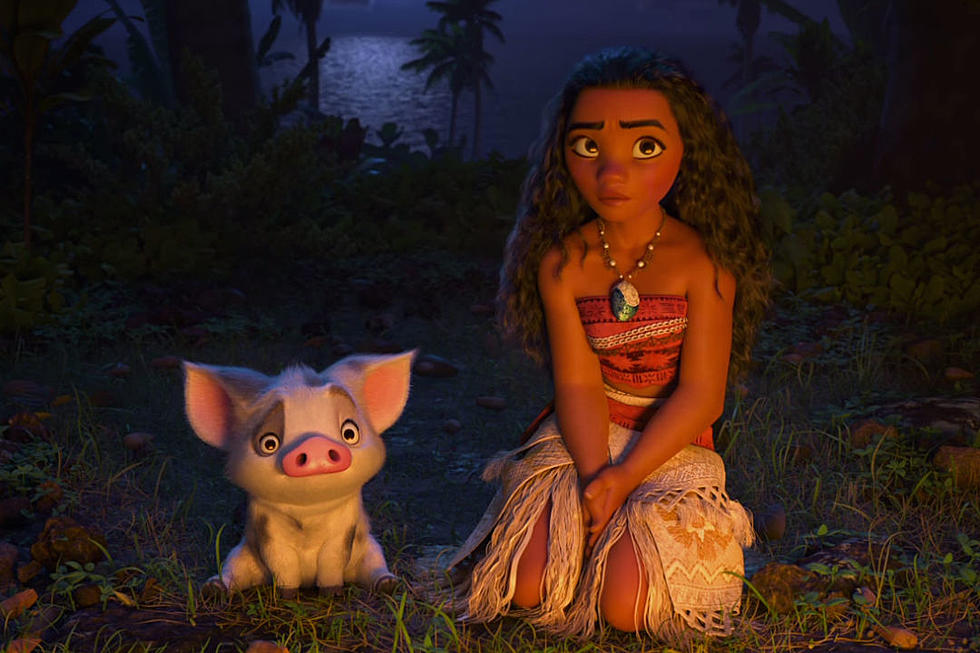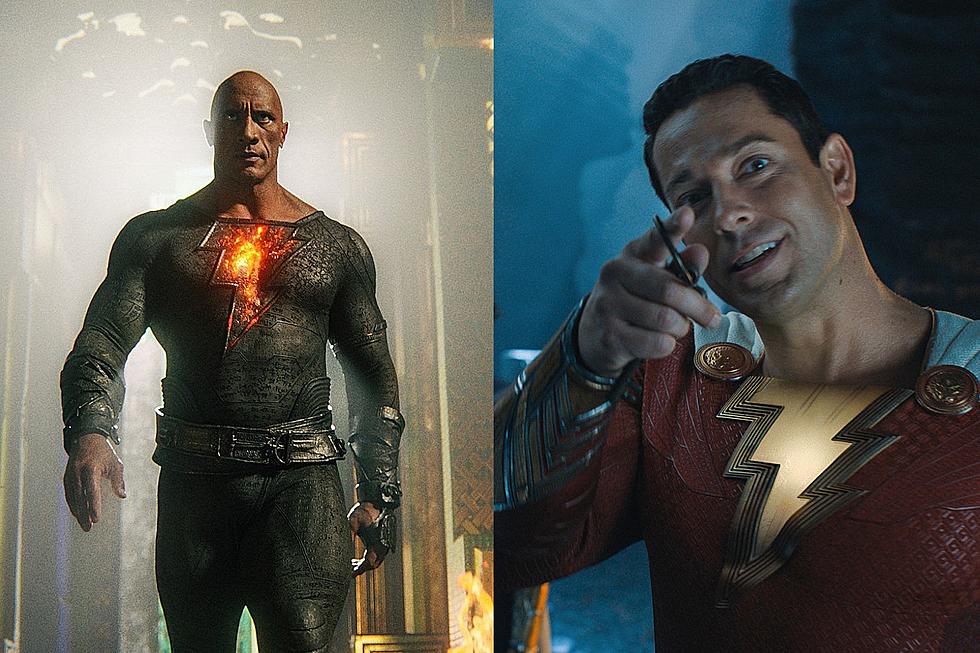
‘Moana’ Review: A Less-Than-Fantastic Voyage From Disney
Like many of the shorts that play before Disney and Pixar’s latest animated films, the one attached to Moana — Inner Workings — shares some similarities with the feature it precedes. Both are stories that explore the familiar conflict between head and heart; between pursuing one’s passions and begrudgingly submitting to practicality. Oh, and they both feature the ocean. Moana also shares a few similarities with other Disney films (like Finding Dory, it also has a hilariously stupid bird), but it could benefit from having a little more in common with Frozen.
That’s not to say that it doesn’t share some themes with Disney’s biggest animated film of all time: Both have a humorous self-aware streak and fairly catchy songs, and like Frozen’s Anna and Elsa, Moana’s title character gleefully subverts the reductive princess stereotypes that Disney perfected and perpetuated for decades. Moana is the story of a young woman torn between the logical limitations of her responsibilities and her innate, seemingly irrational desire to become an explorer. It’s a conventional Disney narrative with some unconventional dressing, like the Polynesian setting and Moana’s role as the imminent leader — not princess — of an entire island.
But where Frozen was a defiantly chilly breath of fresh air, Moana feels somewhat stagnant. Despite a few fantastic deviations (including the lack of a love interest to hinder our hero’s development), Moana is still very much a paint-by-numbers narrative. No matter how many self-aware jokes the characters crack about breaking into song again or whether or not Moana is a princess, she’s still stuck in an overly familiar story structure — one that is repetitive and slavish to rudimentary conflict.
Much of that is driven by Moana’s relationship with Maui, a narcissistic demigod voiced by — who else? — Dwayne Johnson. One of the tenets of cinema, film quality be damned, is thou shall not speak ill of The Rock (not that he’s ever given us a reason), but his usual charisma is wasted here. Perhaps it was lost in animated translation, or perhaps in light of the recent events, it’s harder than ever to empathize with an obnoxious character who lacks any semblance of humility.
Together, Moana and Maui must venture across the sea to restore the Heart of Te Fiti, a small but powerful object that the demigod stole many years ago. They incessantly bicker with one another and their brief reconciliations only ever last long enough for the film to hatch another conflict to spark more bickering. A few things break up the monotony of Maui and Moana’s not-quite-fantastic voyage, including the film’s most inventive and daring sequence, which involves giant ships manned by adorably vicious coconut creatures who are after the Heart of Te Fiti. The ensuing chase is like a delightfully strange reimagining of Mad Max: Fury Road, complete with a couple of Coconut War Boys playing battle drums.
Then there’s the googly-eyed chicken named Hei Hei, voiced (squawked?) by Alan Tudyk. Like Becky in Finding Dory, Hei Hei is a dumb bird that functions as a one-note punchline, but he’s never not hilarious. Last but far from least is Tamatoa, a humongous crab who lives in Lalotai (the realm of monsters) and likes to hoard shiny things. Voiced by Jemaine Clement, Tamatoa delivers one of the funniest and most exciting sequences, and — aside from Moana’s ballad — provides the film’s best song, a funky track reminiscent of “Oogie Boogie’s Song” in The Nightmare Before Christmas.
Most of the songs, co-written by Hamilton’s Lin-Manuel Miranda and Opetaia Foa’i, are solid if unremarkable. The opening number is an ode to coconuts in which the Pacific Islanders extol the fruit’s myriad uses with overly-simplistic lyrics. As a musical piece of edutainment, it’s endearing and pleasant, but taken out of context it could sound like the anthem for a tropical cult. That’s even more disappointing when you consider that Moana was co-directed by John Musker and Ron Clements, the duo behind The Little Mermaid, which arguably features the best songs in Disney history.
It’s difficult, though not impossible, to criticize Moana’s underwhelming qualities while appreciating the significance of the film’s eponymous Polynesian hero. In 2014, Big Hero 6 featured a biracial protagonist (the half-Japanese, half-white Hiro) with a diverse group of friends, but there has not been a non-white female protagonist in a Disney animated film since 2009’s The Princess and the Frog. (To be fair, in recent years many of Disney and Pixar’s animated movies have involved anthropomorphic objects and talking animals that are not usually defined by skin color or heritage.)
But visibility doesn’t automatically equal greatness, which isn’t to say that Moana isn’t a good movie — just that such great heights always seem to be hovering precipitously out of reach. Moana was written by Jared Bush with six (!) other writers receiving “Story By” credits; of those, only one was a woman. And given that all four (!) of the film’s directors are men, one can’t help but wonder if Moana would have benefited from a more prominent female perspective. Unfortunately, women rarely direct animated films for Disney. Perhaps it’s no coincidence that Frozen is one of the few exceptions.
More From ScreenCrush









